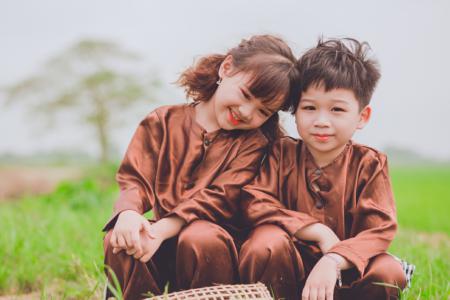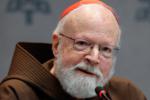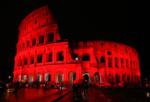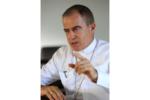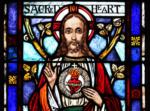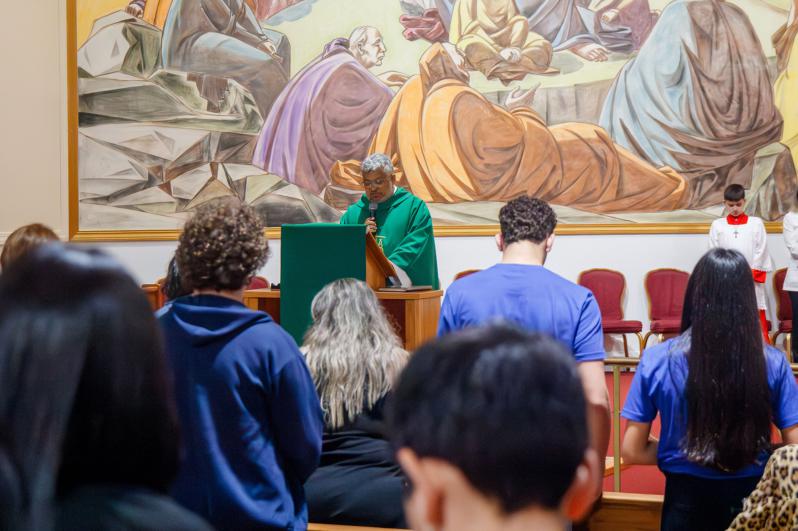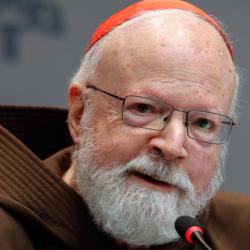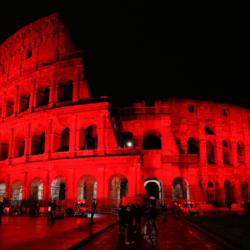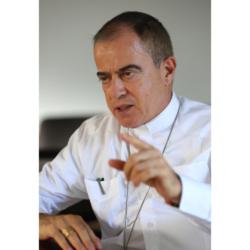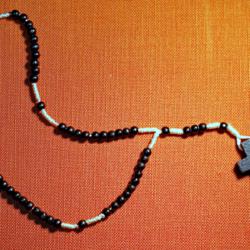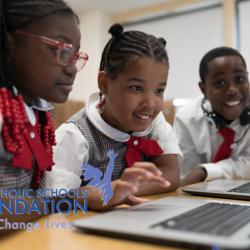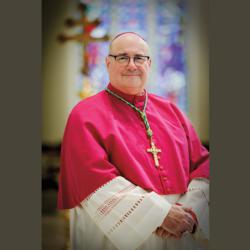Madonna Shrine's Apostolate for Inclusion welcomes children with special needs
EAST BOSTON -- In 2015, seven-year-olds Lucas Rocha and Ryan Mathews came to be catechized at the Madonna Queen of the Universe Shrine in East Boston. The shrine's teachers tried to catechize Lucas and Ryan like any other children, but it quickly became clear that the typical approach wasn't working. Lucas had autism and Ryan had Shwachman-Diamond syndrome, a rare disease which severely decreased the number of white blood cells in his body.
The arrival of Lucas and Ryan made it clear that shrine staff needed to learn more about catechizing children with special needs. Volunteer Marcia Friosi took Catholic special education classes offered by the University of Dayton, and in 2018, she started the shrine's Apostolate for Inclusion.
"Every child is unique and this statement is especially true for children with disabilities," Friosi told The Pilot. "We can't give up on this beautiful mission. We have to be the voices of these families who feel excluded. Their struggle is not easy in society and at school, but in the Church, it has to be different."
On Oct. 7, children with autism, ADHD, and other special needs joined their families for a monthly sensory-friendly Mass at the Madonna Shrine. During such a Mass, there is no music. The lights are dimmed, and the priest and lectors speak quietly. Children are given fidget toys such as stress balls to help relieve their anxiety and pent-up energy. The Masses are intended for children who have learning disabilities, Down syndrome, are blind, or are deaf, but all are welcome.
"The priests make sure the parents feel comfortable to be there," Friosi said. "No matter if the children move from their pews or make sounds. They belong there."
Oct. 7 was also the first day of religious education classes for those who wished to become mentors for the 18 children currently in the Apostolate for Inclusion.
"Information is the weapon," Friosi said. "We have to deal with new situations that arise, because it is not enough just to open the doors of our church. There are barriers that we need to break down. For example, raising awareness to accept and respect (children with special needs)."
The Apostolate for Inclusion's religious education classes last an hour each, with five-minute breaks throughout. The classes use music, movement, humor, and personal stories to make learning engaging. The classes are also small, allowing each child to receive more one-on-one attention from mentors. Mentors not only work directly with the children, but with their families as well.
Friosi said that mentors must remember that they are "the face of God for the child," and therefore must remain optimistic, forgive mistakes, reinforce positive behavior, and admit their own flaws.
"Kids learn from that," she said. "They take that more seriously than trying to be the perfect adult. You'll get a little closer to discussion about sin and forgiveness."
One of the challenges of the class is getting the children to understand the practice of Holy Communion. Lucas in particular had trouble swallowing the consecrated host.
"His mentor, Marianne, had to explain to him that that little piece of the host was Jesus," Friosi said.
Over time, Marianne would introduce Lucas to larger and larger portions of non-consecrated hosts so that he could get used to swallowing the whole thing. In June 2019, after four years of training, Lucas had his First Communion.
"It was beautiful," Friosi recalled. "He did everything so well. I can say that it was worth it to embrace this cause. God empowers the chosen. We prayed a lot to get to watch Lucas receive the Body of Christ."
It has been a learning experience for Friosi as well. When three children with ADHD -- nine-year-old Daniel, seven-year-old Gabriel, and nine-year-old Arthur -- joined the Apostolate for Inclusion, Friosi initially thought that their trouble paying attention in class meant that they were being disrespectful.
"How wrong I was," she said. "Due to all their difficulties in a regular classroom, their parents decided to register them in the inclusion program because they are labeled as being rude . . . We are not excluding them from regular catechesis."
Daniel had his First Communion in 2019, Arthur had his First Communion in 2021, and Gabriel will have his First Communion in 2024.
In 2020, the pandemic forced inclusion classes to be online, which was hard for the children. Things got worse at the end of the year, when Friosi's two fellow mentors left the shrine. Two weeks later, Father Antonio De Souza, who had experience working with special-needs children in the Philippines, told his parishioners about the need for mentors. After that day's Mass, nine people expressed their interest in becoming mentors.
"It was a glory!" Friosi said. "God acts at the right time."
Father De Souza left the shrine in December 2022. Friosi feared that the Apostolate for Inclusion would have to start all over, but Father De Souza's replacement, Father Marcio Calais, stunned Friosi with his insight. He was the one who came up with the idea to have sensory-friendly Masses.
"It was a miracle," Friosi said. "After so much struggle, a priest who embraces our mission with all his love and will."
